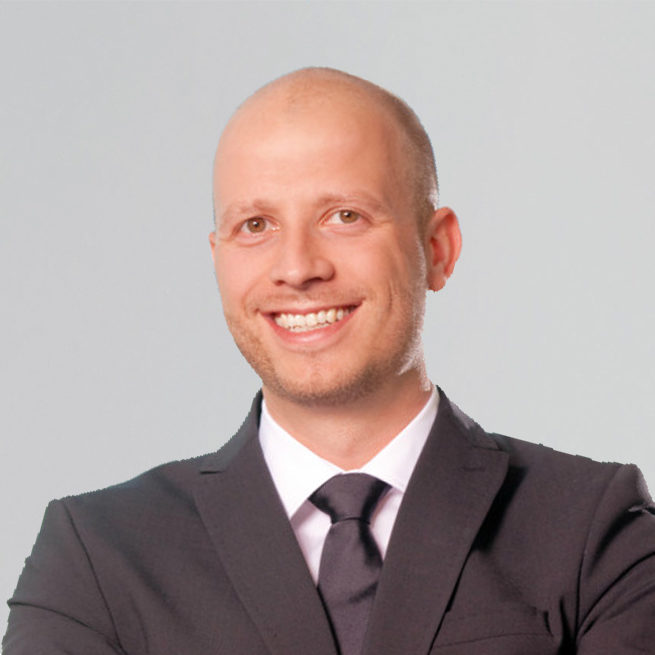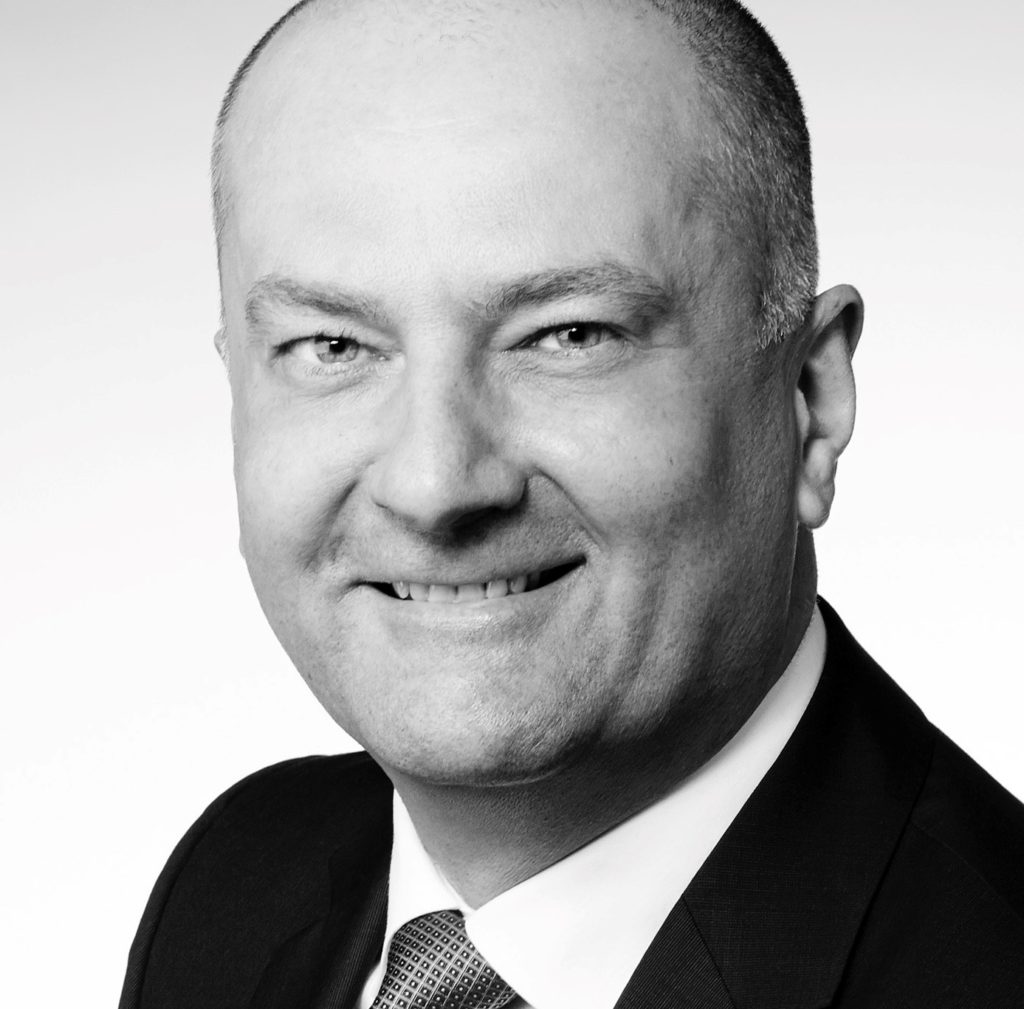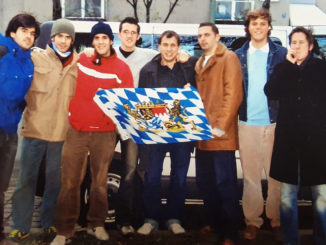
Dr. Alexander Müller successfully completed his Doctor of Business Administration at Munich Business School (MBS) and Sheffield Hallam University (SHU) in 2020 with a dissertation on image theory. In this interview, he talks about his motivation for the doctoral program, the development of his research topic, and his biggest hurdles and successes during and after the DBA. In addition, academic director of the DBA Prof. Dr. David Wagner provides insights into the structure of the program.
MBS Insights: Prof. Wagner, how is the DBA program of Sheffield Hallam University, which Munich Business School organizes, structured? What distinguishes the DBA from a PhD?

Prof. Dr. David Wagner: The DBA program is structured in two phases: The first one is the preparatory phase, in which three modules have to be completed and the project proposal needs to be refined. The modules are called Critical Thinking in Business Administration, Contemporary Issues in Business and Management, and Research Approaches and Designs. The second is the research stage, during which the DBA candidates work on their own projects and complete the DBA research, including data collection, analysis, and write-up. The first phase spans over the first 1.5 to 2 years of the program, the second phase is ideally completed by year 4 of the program.
What makes the program different from traditional PhD programs, at least those in Germany? In my eyes, there are three unique features. First and foremost, the program is part-time, allowing DBA candidates to pursue a day job, while completing the DBA on the side. Second, the program is structured, meaning that the three modules named above are required to complete the degree. Essentially, they are supposed to provide the theoretical foundation for the project work of the DBA candidates. Third, the DBA program has a stronger practical orientation. A lot of DBA candidates are trying to use the DBA as a vehicle to do in-depth research on a current work challenge they are facing.
MBS Insights: Dear Alexander, you recently graduated from the DBA program. Congratulations! Why did you choose the DBA program at SHU and MBS?
Dr. Alexander Müller: After finishing additional studies in economics, I was looking for a part-time doctoral program that combined managerial practice with academic research and rigour. I evaluated the information available on the internet and decided for the approach of the Munich Business School and Sheffield Hallam University partnership since it offers a thorough introduction to and preparation for academic research whilst providing international exposure combined with the academic reputation of both institutions.
MBS Insights: In your opinion, what is the unique feature of the DBA program, Prof. Wagner?
Prof. Dr. David Wagner: MBS is a family-like place. We usually accept around 12 DBA candidates per year. Such a small group means that people get to know each other really well – which holds for both the DBA candidates themselves and the lecturers they meet during the program. The DBA candidates are intellectually curious, very experienced in their managerial roles and normally have a strong international background. This makes the group a wonderful place to have deep discussions with like-minded peers. Especially through the collaboration with Sheffield Hallam University, a large university, there is a wide variety of supervisors available from all management backgrounds, both in terms of disciplines they are in as well as in terms of methods they have been using. This means there is also strong institutional support for the successful completition of DBA projects.
MBS Insights: Back to you, Alexander – how did you come up with your research topic?
Dr. Alexander Müller: This was indeed a journey! When applying for the DBA program I had a first, rough idea what topic I would like to research. This was obviously strongly rooted in my world of thought at that time created by my experience and education. However, when I learned about how knowledge is created and about the various approaches of perceived reality, I started to reflect on my experience and mindset. Eventually, and after discussing with my peer students, I changed my research topic. The process that led me to the research project was certainly a very rewarding one.
MBS Insights: What was your DBA journey like? What were important milestones?

Dr. Alexander Müller: Besides the satisfying success to contribute to management research and knowledge, the DBA journey was very rewarding to me as a manager and person. Changing the perspective on topics that are taken for granted in daily managerial life, initiates a self-reflection process that stretches farther, and penetrates deeper than those exercises known from mainstream management training. As mentioned earlier, the process to define the research topic was rewarding. Equally, the taught modules and subsequent discussions with peer students on the latest management related theories and practices widens the horizon of one’s mind whilst paving the way for the program’s centrepiece, the doctorial research project. Latter is a journey in itself requiring thorough preparation and, first and foremost, discipline and determination to finish the research and the thesis.
MBS Insights: How did you manage the balancing act between work, family, and DBA?
Dr. Alexander Müller: This is almost certainly one of the biggest challenges. During the most demanding times of the DBA program, I was ‘lucky’ to commute on the weekends between my family and the location of my company. Therefore, I could work the evenings during the week and had time for my family on the weekends. I guess, if someone does not have the ‘luxury’ of being a weekend commuter, it is important to block time in the calendar to work on the module assignments, the research project and, eventually, the thesis itself. It is important though that you make rigorously use of the blocked time slots to get things done, otherwise you will be in permanent delay and you will suffer from running deadlines.
MBS Insights: How has the DBA program and its completion advanced you? How did your career evolve after graduating from the DBA program?
Dr. Alexander Müller: This is indeed a very interesting question since career progression was not on my mind when taking the decision to join the DBA program. I was already and still am in a C-level management position. I, however, firmly believe that the academic and self-reflective experience of the DBA program made me a better manager. Solid and good management is in demand more than ever. Therefore, in terms of career path, if you are not there yet where you ought to be, the Munich Business School/Sheffield Hallam University DBA program can provide you the boost.

Would you like to scientifically research a current economic issue within the framework of a doctorate without having to leave your professional career?
The part-time Doctor of Business Administration (DBA) program at Munich Business School and Sheffield Hallam University (SHU) is just right for you! See for yourself: Doctor of Business Administration



